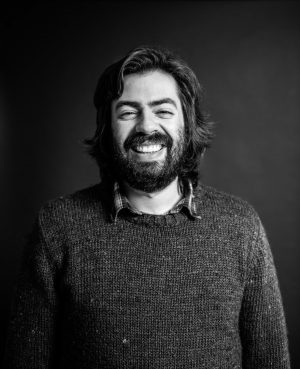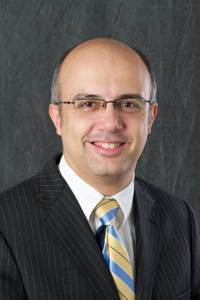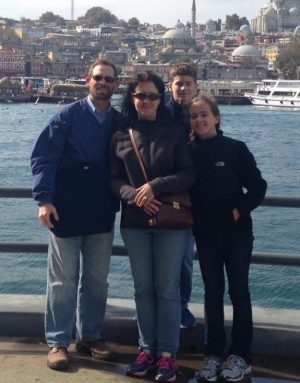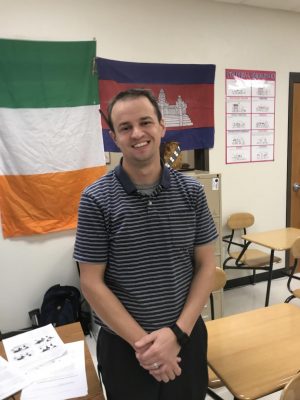Turkey in the spotlight: Turkey and the USA
Differing perspectives on how Turkish-Kurdish conflict affects life at home and abroad.
November 13, 2019
For many, the conflict in Syria, Iran and Turkey is far from home; it is just part of a daily news cycle, soon to be forgotten. However, for some who have a closer connection, this is directly affecting them and has a big impact. The Kurds are an ethnic group that occupies parts of Syria, Iran and Turkey. They currently are and have been seeking independence, which has lead to conflict between Turkey and Kurdish people. A few of these people who have been directly affected include: a Turkish man living in Iowa, an American family living in Turkey, a Turkish reporter, and an American social studies teacher.
Turkish Viewpoints

Mehmet Atakan Foça, a Turkish journalist and a fellow for Ashoka, a non-profit concerned with inequality worldwide, observed how Kurdish citizens and the Turkish government interact. “They don’t understand the power of the Kurdish movement, actually, and they are always discriminating the Kurds,” said the reporter. According to Foça, the Kurds seem willing achieve their goals by whatever means are necessary. However, this conflict is not something that will be able to be resolved with further discrimination. As seen from previous attempts, it will only drive them apart and may even be worse for Turkey. This isn’t the only way the Kurdish movement for independence has changed Turkey. Foça said, “[The] Kurdish movement helps to democratize the country’s culture.”

Hakan Duran, a local medical doctor in Iowa City, offers a perspective regarding the US and Turkish points of view. Duran was born and raised in Turkey but also has dual citizenship in America. “America is a richer country and a little more serious compared to Turkey. And, you know, Turkey has a different kind of wealth in terms of culture and human relationships and social interaction,” Duran said. The economic difference between the countries can make the Kurdish conflict be misrepresented in the US news sources. These misrepresentations have hindered progress in resolving the conflict. “There are external influences that keep changing this conflict,” Duran said. “It makes it harder for the conflict to resolve on its own.” Duran concluded, “There is a solution, as long as there is a strong leadership. You know, some kind of initiative to solve this problem.”
American Viewpoints

Rebecca Hassell, an American teenager who has lived in Turkey for the last four years, commented on how she views the conflict. “In Turkey the government has started to use the Kurds as their scapegoats of sorts for their political problems.” Hassell said, “Not to say that the Kurds are not causing problems in Turkey, but Turkey has some of its own problems.” As for what problems the Turkish-Kurdish conflict is having on Turkey, Hassell said, “It causes a lot of political indecisiveness and I think the more that the Turkish government furthers this problem, the less united and effective the Turkish government can be.”

AP human geography teacher Brendon Aitken offered his viewpoint on this issue, “Although Turkey is a more developed country according to the United Nations, they are still dealing with these issues as a big part of their livelihood.” Aiken said, “There are no easy solutions to this, I think, the Kurdish people want their independence. And I think the Turkish people are like: ‘we can’t do that’. What’s to say that other groups are going to want independence and then your country’s going to be constantly cut into pieces.” He explains his views on how the conflict is affecting the U.S. “I think it affects the whole U.S. in the sense that we’re becoming more isolationist. We’re stepping back and we’re trying to be less leaders of the world and more: let’s take care of what’s going on in the U.S.”
The Turkish-Kurdish conflict is a complex situation and there is no easy solution. There is extreme pressure coming from both sides of the conflict to be resolved in their favor. It is very hard for anyone to completely understand this issue, especially if they are not directly affected by it. Duran mentioned that there are external influences that can add to the conflict and how we see it. Everyone interviewed agreed on the complexity, confusion, and profound impacts the conflict has. However, they also agreed on the importance and ability for it to be solved. In a world full of varying viewpoints, staying informed is the best tool.